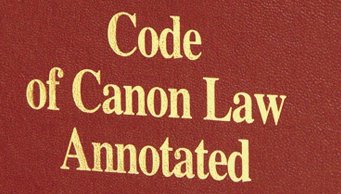
Continued from previous page
And as I have reported before on this blog, Paragraph 2356 of the Catechism states: “Rape is the forcible violation of the sexual intimacy of another person. It does injury to justice and charity. Rape deeply wounds the respect, freedom, and physical and moral integrity to which every person has a right. It causes grave damage that can mark the victim for life. It is always an intrinsically evil act. Graver still is the rape of children committed by parents (incest) or those responsible for the education of the children entrusted to them.”
Periodically, the Church states that a divorced person who remarries without receiving an annulment cannot receive Communion.
Pope John Paul II reaffirmed this teaching in a 1997 speech: “As I wrote in the Apostolic Exhortation Familiaris consortio, the divorced and remarried cannot be admitted to Eucharistic Communion since ‘their state and condition of life objectively contradict that union of love between Christ and the Church which is signified and effected by the Eucharist.’”
In January 2003, the Vatican’s Congregation for the Doctrine of the Faith told Catholic politicians that their voting records must obey Church teachings on life issues – such as euthanasia and abortion. U.S. bishops have discussed whether Communion should be withheld from pro-abortion politicians.
The Catholic Church fiercely defends the holiness of the Eucharist. The bread and wine are consecrated in special vessels. Consecrated Hosts are stored in a tabernacle. No devout Catholic walks past a tabernacle without bending a knee or bowing the head as a sign of reverence (Catechism, 1378).
Some Catholics must wonder: Why did the hierarchy allow known child molesters to preside at Mass? What could be more sacrilegious?
The Church’s own rules hold priests to a higher moral standard than laypeople. Canon 276, Paragraph 1 states: “In leading their lives, clerics are bound in a special way to pursue holiness since, having been consecrated to God by a new title in the reception of orders, they are dispensers of the mysteries of God in the service of His people.”
According to Canon 212, Paragraph 3, laypeople have the right and the duty to speak out “on matters which pertain to the good of the Church.” They may address their opinions to “the sacred pastors” as well as to the rest of the Christian faithful.
When the Vatican speaks on moral worthiness and the Eucharist, why does it drop the magisterial hammer on the laity, not on priests and bishops?
These questions will continue to perplex some Catholics. And if they want answers, they have every right to demand them.
Sources
Return to main page to comment on article.

No comments:
Post a Comment